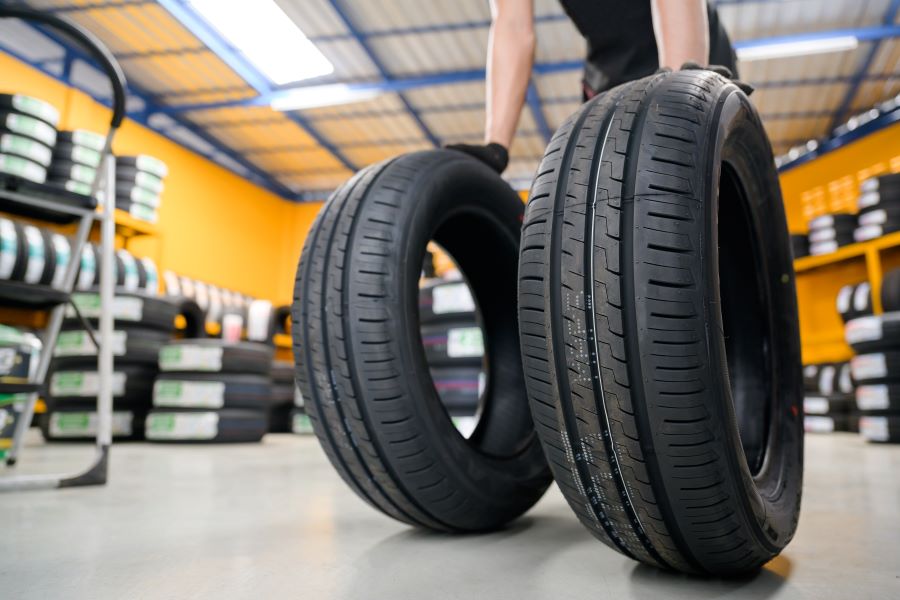Insights Into Pricing Dynamics for Cooper Tires
Cooper Tires has established itself as a significant player in the Australian tyre market, offering a diverse range of options for various vehicle types and driving conditions. Understanding the pricing structure of Cooper tyres involves examining multiple factors that influence costs, from manufacturing specifications to market positioning. Australian consumers often find Cooper tyres positioned as a mid-range option, balancing performance characteristics with competitive pricing strategies that make them accessible to a broad range of vehicle owners.

Understanding Cooper Tire Price Ranges
Cooper tyres typically fall within the mid-tier pricing category, offering alternatives to both budget and premium tyre brands. The price spectrum for Cooper tyres in Australia generally ranges from approximately $150 to $400 per tyre, depending on size, model, and performance specifications. Passenger car tyres usually occupy the lower end of this range, while specialised options like all-terrain or high-performance tyres command higher prices. This positioning allows Cooper to compete effectively against established brands while maintaining accessibility for cost-conscious consumers who still prioritise quality and reliability.
Factors Affecting Cooper Tire Price Points
Several key elements influence Cooper tyre pricing across the Australian market. Tyre size represents one of the most significant factors, with larger dimensions typically correlating with higher costs due to increased material requirements and manufacturing complexity. Performance characteristics also substantially impact pricing, as tyres designed for specific conditions like wet weather performance, noise reduction, or extended treadwear incorporate advanced technologies that increase production costs. Market competition, seasonal demand fluctuations, and retailer markup policies further influence final consumer prices, while exchange rates can affect imported tyre costs.
Common Cooper Tire Models and Price Comparison
Cooper’s product lineup includes several popular models, each targeting different market segments and price points. The Cooper CS7 serves as an entry-level touring tyre, typically priced between $150-220 for common passenger car sizes. The Discoverer range, designed for SUVs and light trucks, generally costs between $200-320 per tyre, reflecting the larger sizes and enhanced durability requirements. Performance-oriented models like the Zeon series command premium prices, often ranging from $220-380 depending on specifications. These variations reflect Cooper’s strategy of addressing diverse consumer needs while maintaining competitive positioning across multiple market segments.
Maximizing Value When Purchasing Cooper Tires
Strategic purchasing approaches can significantly enhance value when buying Cooper tyres. Timing purchases around seasonal promotions, typically occurring during autumn and spring, often yields substantial savings. Purchasing complete sets rather than individual tyres frequently results in better per-unit pricing and ensures uniform performance characteristics. Comparing prices across multiple retailers, including both physical and online stores, helps identify the most competitive offers. Additionally, considering tyre warranties, installation services, and alignment packages as part of the overall value proposition rather than focusing solely on initial purchase price provides a more comprehensive cost assessment.
| Cooper Tire Model | Retailer | Size Example | Price Estimate (AUD) |
|---|---|---|---|
| Cooper CS7 | JAX Tyres | 205/60R16 | $180-220 |
| Discoverer AT3 | Bob Jane T-Marts | 245/70R16 | $280-320 |
| Zeon RS3-G1 | Beaurepaires | 215/45R17 | $250-300 |
| Discoverer STT Pro | Tyrepower | 265/70R17 | $320-380 |
Prices, rates, or cost estimates mentioned in this article are based on the latest available information but may change over time. Independent research is advised before making financial decisions.
The Australian tyre market’s competitive landscape means Cooper tyres face constant pressure to maintain attractive pricing while delivering quality performance. Seasonal factors, such as increased demand before holiday travel periods, can temporarily affect availability and pricing. Additionally, technological advances in tyre manufacturing and changing consumer preferences for fuel efficiency and environmental considerations continue to influence Cooper’s pricing strategies and product development priorities.
Cooper’s pricing reflects their positioning as a reliable alternative to premium brands while offering superior quality compared to budget options. This strategic positioning has enabled the brand to maintain steady market share in Australia, particularly among consumers seeking dependable performance without premium pricing. Understanding these pricing dynamics helps consumers make informed decisions when considering Cooper tyres for their vehicles, ensuring they receive appropriate value for their investment while meeting their specific driving requirements and budget constraints.




